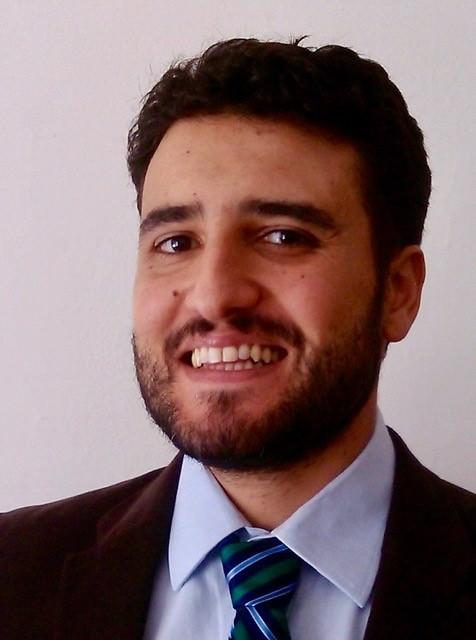Thiago Lima Nicodemo, Research Fellow in the Capes-Humboldt program of Alexander von Humboldt Foundation
At which university did you study and what?
I first studied Law at the Pontifical Catholic University of São Paulo (PUC-SP) and history at the University of São Paulo (USP). After that, I did my master´s and my PhD at USP in Social History and my postdoc at the Institute for Brazilian Studies (IEB) of USP. Before I came to FU Berlin, I was a visiting scholar at the University of Bologna (Italy, 2007), University of Texas (USA, 2014), Oliveira Lima Library/The Catholic University of America (USA, 2014) and Stony Brook University (USA, 2015). I taught Theory of History and History of Historiography at Rio de Janeiro State University (UERJ) and currently I am a professor at the History Department of the State University of Campinas (UNICAMP).
What are you currently doing at FU Berlin?
Within the framework of my scholarship from the Brazilian funding agency called CAPES and the German Alexander von Humboldt Foundation, I am working at the Institute for Latin-American Studies (LAI) of FU Berlin as an experienced researcher.
Why did you choose to do research in Germany, more specifically at FU Berlin?
I chose the FU because of the LAI, which, besides being famous for its research in the field of Latin American Studies, is also well-known for regularly welcoming scholars from Latin America. I was also very interested in the research areas of my host, Stefan Rinke, who is the director of the LAI. In general, Berlin has many institutions and academics that dedicate themselves to global history and other non-hegemonic forms of production of historical knowledge, which is something thatimmediately appealed to me.
Who or what helped you concerning the preparations for your stay at FU Berlin? Did you receive any useful advice or tips?
As a scholar or professor, it can be very useful to contact the Student Services Center (SSC) of FU Berlin which has a very attentive and competent team. Finding accommodation in Berlin is getting more and more difficult which is why it is helpful to start searching some months in advance. Besides, it is recommendable to explore the nice districts around FU Berlin further, for example Steglitz, Dahlem and Friedenau.
What are your expectations for the future?
My scholarship from the Humboldt Foundation offers me support until the beginning of 2020. Until then, I want to benefit from my research stays in Berlin as much as possible to write two more books. Beyond that, our plan is to strengthen the relationship with UNICAMP so that students from UNICAMP can do research internships in Germany and the number of joint publication projects can be increased. We would also like to welcome students, professors and scholars from FU Berlin at UNICAMP.
Which problems or difficulties did you have to face and how did you manage them?
As the Humboldt Foundation is so well-structured, I did not face any serious problems. But it is important to mention that for humanities scholars depending on archives and libraries about Latin America, the Ibero-American Institute and the Berlin State Library can be extremely helpful.
Is there any particular aspect of FU Berlin that you really like?
Besides the LAI´s reliability and the wide range of cultural offerings in Berlin, I like the FU for being international and for being experienced in terms of intellectual exchange and discussions. Also, the location of the university is great and has many green areas.
What do you like most about life in Germany?
On the one hand, I like the respect that Germans show regarding personal space and the importance that is attributed to the individual development (especially referring to education). On the other hand, I like the urban planning because it provides the cities with spacious green areas and therefore makes them less stressful.
What tip would you give Brazilians who are interested in doing research in Germany?
Commitment to your work from the very beginning and real interest in learning from your colleagues and the local culture.
Which is your favorite word in German?
“Genau” is an almost magic word that is used to express agreement. In addition, it can also refer to something impressive, such as “fantastic!”, “amazing!” or “sensational!”.

